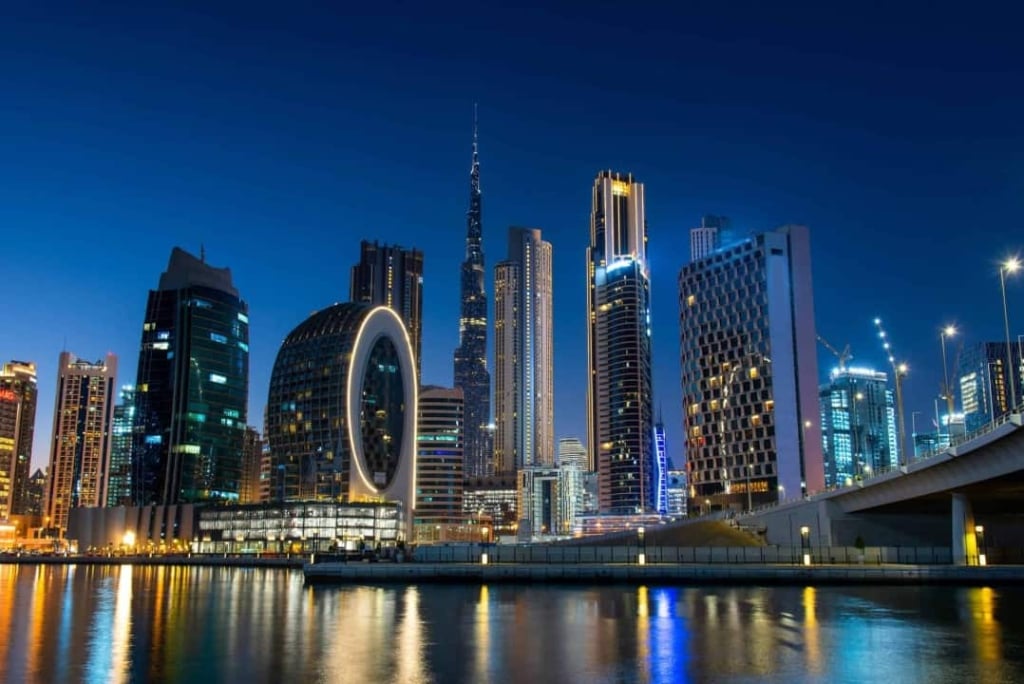Dubai’s rental market has surged recently—rents rose around 16 % in the past year alone, fueled by a population increase of approximately 475,000 people (bringing the city’s total to ~4.4 million residents).
So why such a rapid rise? It’s a perfect storm: continued economic momentum, record-breaking property investment, and demand from long-term visa holders are pushing prices up.
High-end developments in areas like Downtown and Marina remain tight in supply, while landlords leverage Dubai’s flexible rent regulations—permitting substantial hikes at lease renewal.
Coupled with post‑pandemic lifestyle shifts (larger homes, remote-work setups), these forces are converging now, meaning renters and investors alike need to understand the dynamics behind Dubai’s steep and fast-rising rents.
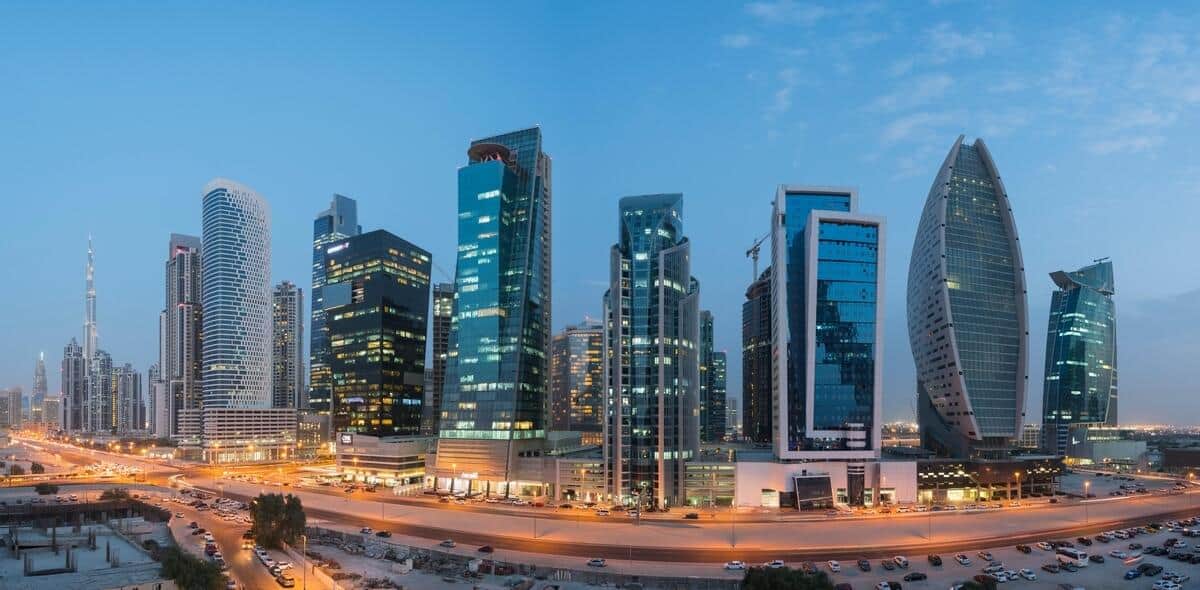
Understanding the Market Dynamics
The Dubai rental market is shaped by several influential factors, ranging from high demand for specific types of properties to economic indicators that signal shifts in rental costs. To answer the question, why is rent in Dubai so expensive?, we must first look at the fundamental market dynamics at play.
Factors Contributing to High Rental Prices
Dubai’s reputation as a global business hub and luxury destination means a significant portion of its housing demand stems from expatriates, high-net-worth individuals, and investors. These groups seek specific amenities, often in upscale or highly desirable neighborhoods, which contributes to the high cost of rent in Dubai.
Economic Indicators Affecting Rent Costs
Fluctuations in the global and local economy have a direct impact on Dubai’s rental prices. Factors such as GDP growth, inflation rates, and currency exchange affect investor confidence and demand, which in turn influences rental costs. In times of economic prosperity, people are willing to spend more on housing, leading to a surge in rent costs. Conversely, economic slowdowns can prompt slight adjustments, although Dubai has consistently maintained a high rental standard.
Read more: Pros and Cons of Living in Al Barsha
The Role of Supply and Demand
Supply and demand play a significant role in understanding why are Dubai rents so high. Dubai’s rapid urban expansion has made it one of the most attractive destinations for expatriates and tourists, which keeps demand elevated in prime locations.
Limited Housing Supply in Key Areas
Areas like Downtown Dubai, Marina, and Palm Jumeirah offer limited housing availability. With only so many units available in these desirable locations, high competition drives up prices. Despite ongoing development, prime locations remain scarce, meaning prices for properties in these areas are unlikely to decrease substantially.
High Demand for Luxury and Family Rentals
Dubai is home to both high-net-worth individuals seeking luxury apartments and families looking for spacious accommodations. The demand for high-end properties with extensive amenities has naturally led to elevated prices. Many tenants are willing to pay a premium for locations that offer luxury, exclusivity, and convenience, especially when these neighborhoods are close to workplaces, schools, and recreational facilities.
Influence of Government Policies
Government policies also play a crucial role in rental prices. Dubai has introduced several policy changes over the years that influence the rental landscape, both positively and negatively.
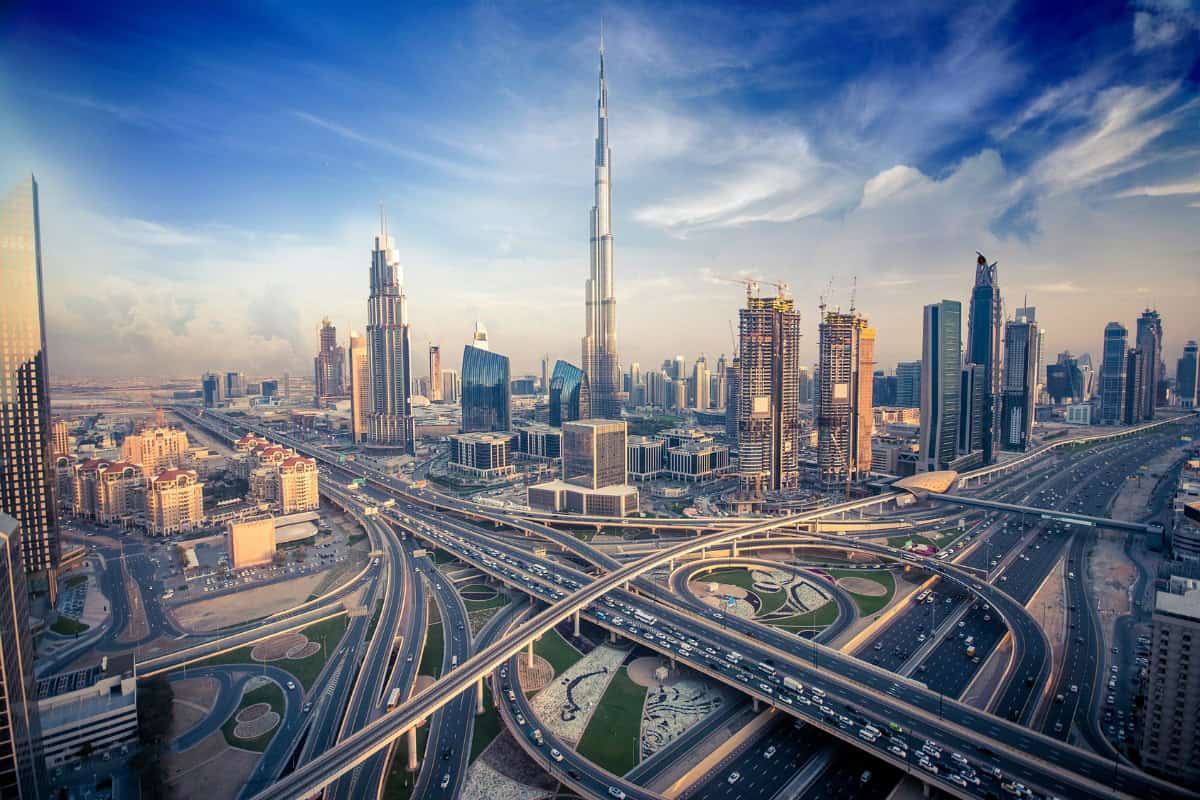
Visa Reforms and Their Impact on Rental Markets
Recent reforms, such as the 10-year Golden Visa and five-year retirement visa, have led to longer expatriate stays in Dubai, which affects the overall demand for housing. As more people choose Dubai for long-term living, the rental demand has risen, leading to high prices, especially in neighborhoods that cater to expatriates.
Regulatory Framework Affecting Rent Control
While Dubai has some regulatory frameworks for rent control, these regulations vary by property type and location. Unlike cities where strict rent control policies curb price increases, Dubai’s rental regulations allow for flexibility, enabling landlords to adjust prices based on market trends. This regulatory structure is another reason why rent in Dubai is so expensive.
Post-Pandemic Trends in Rental Prices
The COVID-19 pandemic reshaped the rental market globally, and Dubai was no exception. Several post-pandemic trends have influenced Dubai’s high rental prices.
The Shift to Remote Work and Its Effects on Housing Demand
With remote work becoming more common, many people now prioritize larger living spaces with home office capabilities. This demand for more spacious properties, particularly in suburban areas, has led to increased rents, as people seek environments that accommodate both work and leisure.
Changes in Expatriate Movements Post-COVID-19
After the initial pandemic lockdowns, Dubai saw a significant influx of new expatriates, drawn by the city’s proactive response to the crisis and appealing lifestyle. This influx contributed to higher demand for rental properties, particularly those available on a monthly basis, making rent in Dubai so expensive even as other global markets stabilized.
Investor Behavior and Market Trends
Investors heavily influence Dubai’s rental market, as the city remains a lucrative destination for property investment.
Real Estate Investment Trends in Dubai
Dubai offers tax-free rental income and attractive property yields, drawing investors worldwide. This steady investment inflow increases competition in the rental market, with landlords often able to command high rents due to the significant demand from expatriates and locals alike.
The Appeal of High Rental Yields to Investors
High rental yields make Dubai’s real estate market attractive for both domestic and foreign investors, who view properties as a profitable investment. This constant interest in Dubai’s property market is a primary reason why rents remain high, as investors seek to capitalize on the city’s demand for luxury and family-oriented rentals. To see more property rental ads in Dubai and its different neighborhoods, visit the following pages
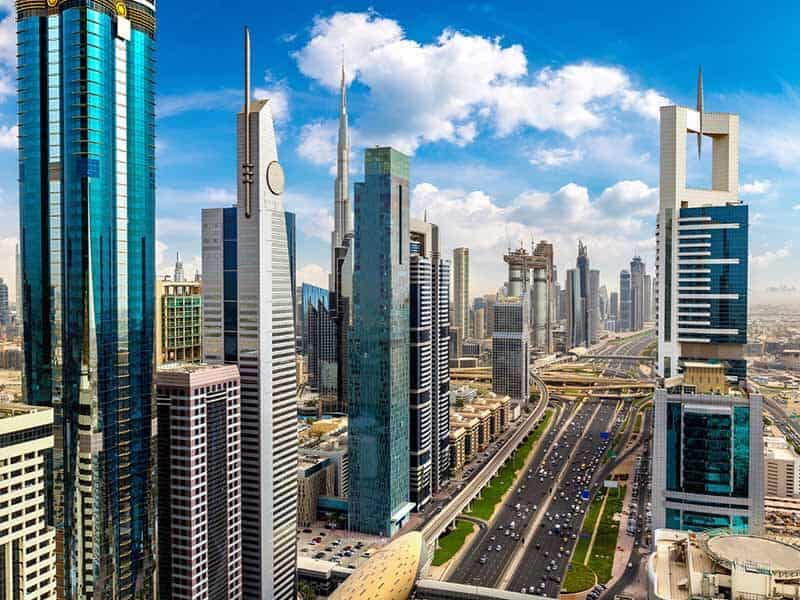
Comparative Analysis with Other Global Cities
Understanding why Dubai rents are so high becomes clearer when comparing the city to other major global hubs.
How Dubai Rents Compare to Other Major Cities
Compared to cities like New York, London, and Singapore, Dubai’s rental prices are competitive yet distinct. Dubai offers a unique combination of luxury living and lower taxation, which other cities often cannot match. This combination makes Dubai appealing to high-income earners, who drive up rental demand and costs in prestigious neighborhoods.
Average Rent Prices by Neighborhood in Dubai
Dubai’s neighborhoods each have their own vibe, and rent prices reflect that.
Numbers are annual, and of course, there’s wiggle room depending on the building and how new or high-end it is.
| Neighborhood | Studio (AED/year) | 1-Bedroom (AED/year) | 2-Bedroom AED/year |
| Palm Jumeirah | 104,900 | 153,400 | 233,400 |
| Dubai Marina | 69,700 | 95,400 | 141,700 |
| Downtown/DIFC/Business Bay | 50,000–80,000 | 75,000–160,000 | 110,000–200,000+ |
| Dubai Hills Estate / JVC | 45,000–75,000 | 60,000–110,000 | 90,000–170,000 |
| Dubai Sports City | 35,000–60,000 | 50,000–80,000 | 80,000–120,000 |
If you’ve got your eye on somewhere like Palm Jumeirah, be ready for a serious premium—sea views and prestige drive those prices up. Dubai Marina is a bit more affordable but still lively and central, perfect for singles or young couples who want the action without the full “luxury island” price tag.
Downtown, DIFC, and Business Bay are all about business, skyscrapers, and convenience, so rents can get steep, especially for bigger units.
On the other end, communities like JVC, Dubai Hills Estate, or Sports City are much kinder to your wallet. These spots are especially popular with families and folks who want a bit more space for their money. You’ll find newer buildings, more green space, and, in many cases, a quieter lifestyle.
The takeaway? Dubai has something for every taste and budget. The key is figuring out what matters most to you—location, size, view, or just stretching your dirham as far as it will go.
Factors Leading to Higher Rents in Dubai vs. Global Markets
Dubai’s appeal as a luxury destination, combined with its favorable business climate and tax benefits, means that rental prices are higher than in many other markets. This attracts expatriates and high-net-worth individuals willing to pay a premium for exclusive, well-located properties, further contributing to why rent in Dubai is so expensive.
Read more: How Much Does a Room Cost in Dubai?
How Often Do Dubai Rents Increase?
If you’re renting in Dubai, you might worry about sudden rent hikes. The good news? Dubai’s rental laws actually give tenants some solid peace of mind. Here’s how it really works on the ground:
Rent Increases: Not as Frequent as You’d Think
Landlords can only raise the rent once every 12 months—and only when your lease comes up for renewal. So, if you’re on a yearly contract, there’s no chance your rent will jump midway through your stay.
But even at renewal, they can’t just bump up the price out of nowhere. Legally, your landlord must let you know about any proposed increase at least 90 days before your contract ends.
How much can your rent increase?
To answer this question, it is very useful to look at the Dubai RERA Rent Index. Here are some general tips:
If your current rent is less than 10% below the average for your area, don’t worry because the landlord cannot increase your rent by any means.
If it’s 11–20% below market, they can raise it by up to 5%.
21–30% below? The cap is 10%.
31–40% below? It’s 15%.
If you’re paying more than 40% below market rate, the increase can go up to 20%.
What Actually Happens in Real Life?
Most annual rent increases hover around 3–5%—sometimes less, especially in stable or oversupplied neighborhoods. The big spikes you hear about are rare and usually only happen if your rent has been way below market for years (dubairealestate.net). In 2025, most analysts expect moderate increases rather than big jumps, especially in newer communities.
What if Your Landlord Breaks the Rules?
If a landlord tries to sneak in an increase without proper notice or goes over the allowed limits, you’re not powerless. You can take your case to the Dubai Rental Dispute Centre—most tenants who do this get the law on their side.
Dubai’s rental system is set up to balance landlord profits with tenant stability. As long as you keep track of your lease dates and know your rights, you shouldn’t have to deal with any nasty surprises.
Future Outlook for Dubai’s Rental Market
Looking ahead, Dubai’s rental market shows signs of continued demand, but with potential shifts in supply as more developments emerge.
Predictions for Rental Trends in the Coming Years
Industry analysts suggest that Dubai will maintain steady rental demand, especially in areas known for premium lifestyle offerings. However, as more developments and expansions are planned, certain neighborhoods might experience more balance between supply and demand, leading to slightly more competitive rental prices.
Potential Changes in Demand and Supply Dynamics
With ongoing infrastructure projects, Dubai’s rental market could see new housing supply in both suburban and urban areas. This expansion may eventually temper high rental prices in specific areas, although prime locations will likely continue to see strong demand.
Why Is Dubai Rent So Expensive Compared to Neighboring Cities?
When looking at rental prices across the UAE, Dubai consistently stands out as one of the most expensive cities. This trend often raises questions about what makes Dubai rent so expensive, especially when compared to nearby cities like Abu Dhabi and Sharjah. Below, we explore several factors contributing to Dubai’s unique rental market dynamics and why it attracts higher rental costs than many of its neighbors.
Comparative Analysis with Abu Dhabi, Sharjah, and Other Neighboring Cities
Compared to other cities in the UAE, Dubai’s rental prices are notably higher. Abu Dhabi, while close in pricing for high-end areas, generally offers more competitive rates for standard apartments. Sharjah, a popular choice for budget-conscious residents, has significantly lower rents due to fewer luxury developments and a more local-oriented lifestyle. Dubai’s status as a global financial center, along with its emphasis on luxury and international appeal, results in more premium rentals than what’s typically seen in neighboring emirates.
Residents who work in Dubai but seek more affordable housing often choose to live in nearby cities like Sharjah and Ajman, where they can commute while saving on rental costs. However, for those who prioritize living close to Dubai’s vibrant attractions, the higher rental prices are often seen as a fair trade-off.
The Appeal of Dubai’s High-Quality Infrastructure and Amenities
Dubai’s world-class infrastructure and amenities also make it a desirable place to live, justifying why Dubai rent is so expensive. From luxury developments with private beaches, pools, and gym facilities, to high-rise apartments offering panoramic views of landmarks like the Burj Khalifa and Dubai Marina, the city offers a lifestyle unmatched by its neighbors. Many rental properties in Dubai come with features like concierge services, smart home technology, and 24/7 security—all of which add to the appeal and cost of renting in the city.
Furthermore, Dubai’s investment in top-tier healthcare, education, and entertainment options adds value to its housing market, making it a preferred choice for expatriates and families. While other emirates may provide more economical housing, they often lack the same extensive range of high-end amenities that Dubai offers, further explaining why Dubai rent is so expensive compared to other cities in the region.
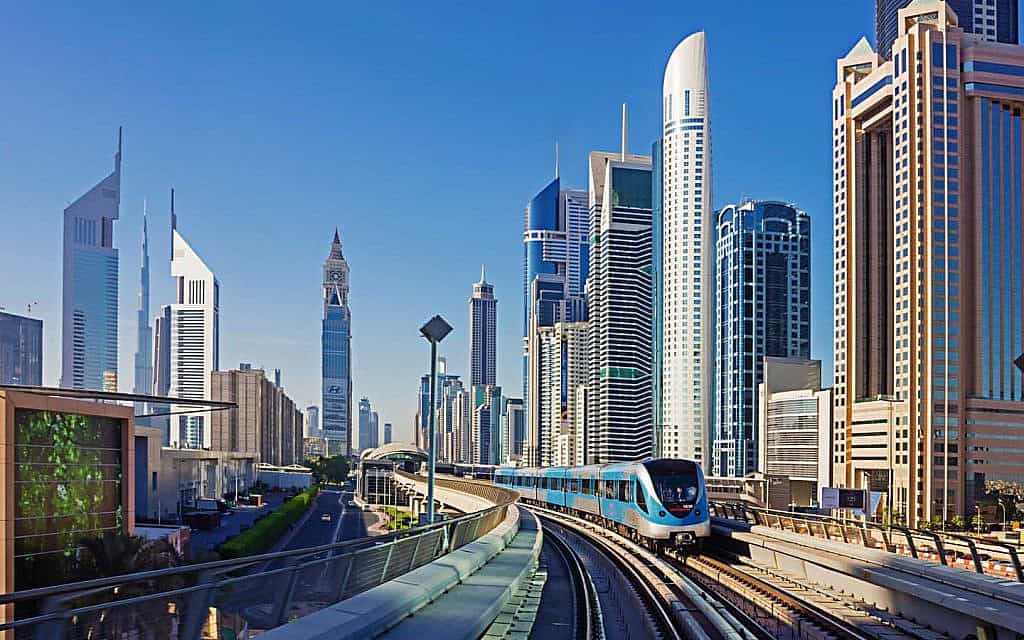
The Cost of Living in Dubai and Its Influence on Rental Prices
Dubai’s rental prices are closely linked to the overall cost of living, which impacts housing affordability for residents. This section can explore various factors influencing the city’s cost of living and how it drives up rental demand and prices.
Rising Utility Costs and Its Effect on Rent
Dubai’s rising utility costs, including electricity, water, and internet, add to the overall cost of living, influencing what residents are willing to pay for rent-inclusive utilities in monthly rental arrangements.
Impact of Transportation Costs on Housing Location Choices
With varying public transport costs across the city, residents often consider transportation expenses when choosing a rental location. Areas near the metro or other transport hubs may command higher rents due to added convenience and savings on commute expenses.
How Lifestyle and Luxury Preferences Shape Dubai’s Rental Market
Let’s be real: when you pay for a place in Dubai’s swankier neighborhoods, you’re not just getting an apartment—you’re buying into a whole lifestyle. Take Dubai Marina, for example. You’ll find one-bedroom flats going for around AED 130,000 a year, but those price tags usually come bundled with rooftop pools, gyms, and a concierge who knows your coffee order by heart.
Now, head over to Jumeirah Village Circle, where a similar-sized apartment without all the bells and whistles might set you back just AED 70,000. The gap is huge, but it makes sense when you look at what’s on offer.
In Downtown Dubai, it’s the little extras that add up fast: private fitness centers, playrooms for the kids, valet parking, and more. Even just having access to an on-site pool or spa can bump your rent by 10 to 20 percent. If you want housekeeping or hotel-style room service, get ready to pay even more.
The bottom line? Amenities here aren’t just nice-to-haves—they’re practically a second currency. People will happily pay a premium for anything that makes daily life a little easier or a lot more glamorous, and landlords know it. In Dubai, “lifestyle” isn’t just a buzzword—it’s a price tag you can actually see on your rental contract.
Read more: Which Area is Popular in Dubai?
Conclusion
If you’re getting ready to make a move to Dubai, take a little time to figure out what really matters to you. Is it all about living close to the action, having extra space, or stretching your budget? Whatever your priorities, do yourself a favor and check the latest RERA rental index before you sign anything—it’s the easiest way to see if you’re getting a fair deal.
Do you think something about your contract doesn’t seem right? Then don’t hesitate to contact the Dubai Rent Dispute Resolution Centre and act as soon as possible.
Because a quick check now could end up saving you a lot of money (and stress) in the future.
We encourage you to check out the honest listings and insights on homebook.ae. Good luck finding your next home!
Frequently Asked Questions
Dubai’s rental prices are high due to a mix of luxury demand, limited housing in prime areas, government policies, and investor interest. These factors collectively make rent in Dubai so expensive.
Yes, Dubai has implemented rent control regulations, but these vary by property type and area, allowing landlords some flexibility in adjusting rent.
Compared to other major cities like London and New York, Dubai’s rents are competitive. However, unique factors like demand for luxury housing and tax advantages make Dubai’s rental prices relatively high.
The main factors contributing to high rents in Dubai include strong demand for luxury and family-friendly properties, limited housing supply in prime areas, favorable visa policies attracting long-term expatriates, and investor interest due to high rental yields.
Yes, while prime areas like Downtown and Marina are expensive, there are more affordable neighborhoods such as Jumeirah Village Circle, Al Nahda, and International City, where rents are comparatively lower.
In Dubai, landlords can only increase rent after a tenancy contract ends, and any increase must align with the Real Estate Regulatory Agency (RERA) rental index. Tenants are typically given notice in advance regarding any rent adjustments.
Rents rose by 16% last year. This increase was due to 475,000 new residents and limited supply in prime areas.
Yes, RERA sets rent caps. Typically, rent increases range from 5% to 20%.
A two-bedroom in central Dubai averages AED 120–180K/year, similar to London or New York—but no property tax.
Yes—places like International City or Al Nahda offer 2BR units for AED 40–60K/year, but with fewer amenities.
Landlords can only raise rent at renewal, with 90 days’ notice and must follow RERA’s rental index.
